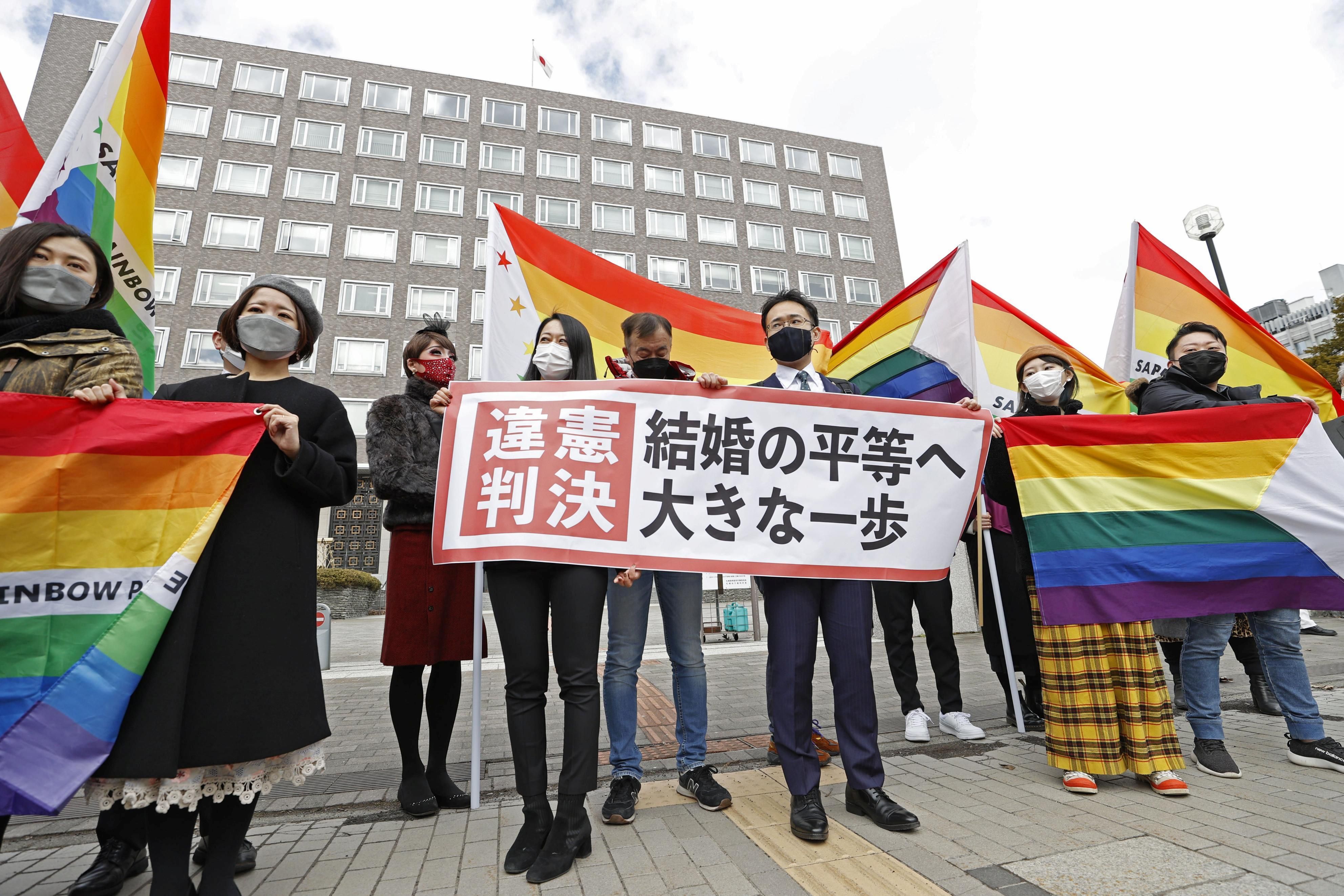News
March 17, 2021
13: A Japanese court ruled for the first time that the government's failure to recognize same sex marriage is unconstitutional after 13 gay couples filed coordinated lawsuits in February 2019. It's unclear, however, how the government will act: on Wednesday, Tokyo reiterated that its stance did not violate the Constitution. To date, Japan is the only G7 country that does not recognize same-sex marriage.
70,000: After a major legal defeat in Britain's Supreme Court, Uber will now have to provide more legal protections to its 70,000 British drivers. The ruling is a massive blow for Uber, which has long lobbied against greater labor rights for its drivers, and could influence ongoing labor battles with gig economy companies in the EU and the US.
450: More than 450 NGOs have called for the EU to abandon a draft free trade deal with Mercosur countries — a bloc including Argentina, Brazil, Paraguay, and Uruguay — which they say would give rise to an increase in deforestation and other livestock trade harmful to the environment. The 2019 deal, which would create a trade bloc spanning roughly 750 million people, has stalled, as France and Germany express concerns over Brazil's lack of protection of the Amazon rainforest.
8: Eight people — six of whom were identified as Asian women — were killed Tuesday in a shooting rampage at several spas in Atlanta, Georgia. Although the police has yet to determine whether race was the motive for the attacks, crimes against Asian Americans in the US have surged since the pandemic began a year ago.From Your Site Articles
More For You
People in support of former South Korean President Yoon Suk Yeol rally near Seoul Central District Court in Seoul on Feb. 19, 2026. The court sentenced him to life imprisonment the same day for leading an insurrection with his short-lived declaration of martial law in December 2024.
Kyodo
65: The age of former South Korean President Yoon Suk Yeol, who was sentenced to life in prison on Thursday after being found guilty of plotting an insurrection when he declared martial law in 2024.
Most Popular
In an era when geopolitics can feel overwhelming and remote, sometimes the best messengers are made of felt and foam.
Hungarian Prime Minister Viktor Orban holds an international press conference in Budapest, Hungary, January 5, 2026.
REUTERS/Bernadett Szabo/File Photo
The Hungarian election is off to the races, and nationalist Prime Minister Viktor Orbán is facing his most serious challenger in 16 years.
How people in G7 and BRICS countries think their policies will effect future generations.
Eileen Zhang
Does skepticism rule the day in politics? Public opinion data collected as part of the Munich Security Conference’s annual report found that large shares of respondents in G7 and several BRICS countries believed their governments’ policies would leave future generations worse off.
© 2025 GZERO Media. All Rights Reserved | A Eurasia Group media company.
